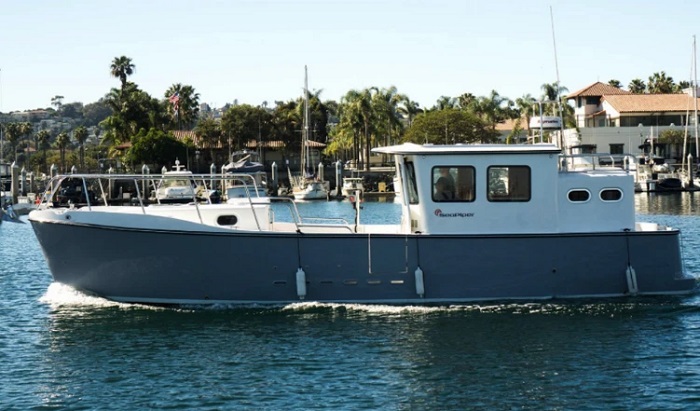Eco-boating: how to enjoy the ocean without harming it

Boating offers unparalleled freedom and connection to nature, but it also comes with responsibility. The ocean is a delicate ecosystem, and every sailor has a role in preserving its health. Eco-boating isn’t just a trend; it’s a commitment to sustainable practices that allow us to enjoy the water while protecting it for future generations. By combining thoughtful habits, technology, and awareness, sailors can minimize their environmental footprint without sacrificing adventure or enjoyment.
Understanding the Impact of Boating
Boats affect the environment in several ways. Fuel emissions, wastewater discharge, chemical cleaning agents, and improper anchoring can harm marine life, coral reefs, and water quality. Awareness is the first step toward responsible boating. Understanding how your actions influence the ocean motivates better practices and fosters a deeper connection to the water.
Every sailor has the power to make a positive difference. By choosing sustainable equipment and adopting mindful behaviors, you can significantly reduce your environmental impact.
Choosing Eco-Friendly Equipment
Modern marine technology offers many options that prioritize sustainability. For example, energy-efficient propulsion systems, hybrid engines, and solar panels reduce reliance on fossil fuels. Selecting durable, long-lasting gear minimizes waste, while high-quality components ensure efficiency.
Using reliable, eco-conscious products like Marine Parts Volvo Penta ensures engines run efficiently, lowering fuel consumption and emissions. Proper maintenance not only extends the life of your equipment but also prevents leaks and malfunctions that could harm the environment.
Waste Management Onboard
One of the biggest challenges for eco-boaters is managing waste responsibly. Always dispose of trash in proper facilities onshore rather than overboard. Composting organic waste and using biodegradable cleaning agents reduce pollution.
Sewage and greywater require special attention. Use pump-out stations and environmentally friendly soaps and detergents. Simple steps like these protect marine life, maintain water quality, and ensure that waterways remain safe and enjoyable for everyone.
Mindful Anchoring Practices
Anchoring can damage sensitive seabeds, including coral reefs and seagrass meadows. Choose sandy or muddy bottoms whenever possible and avoid dragging your anchor across fragile habitats.
High-quality anchors likeAnchors Rocna and Vulcan provide secure holding without excessive movement, reducing seabed impact. Awareness of local conditions and regulations ensures that your anchoring practices protect the environment while keeping your vessel safe.
Reducing Fuel Consumption
Efficient sailing reduces both cost and environmental impact. Harnessing wind power whenever possible and optimizing engine use conserve fuel. Maintaining propellers, such as Propellers for Saildrive, ensures smooth operation and minimizes drag, improving fuel efficiency and reducing emissions.
Small adjustments, like trimming sails correctly, planning routes with currents in mind, and avoiding unnecessary idling, all contribute to more eco-friendly boating.
Respecting Marine Wildlife
Boaters often encounter dolphins, seabirds, turtles, and other marine creatures. Maintaining a safe distance and avoiding sudden loud noises protects wildlife and reduces stress on their natural behaviors.
Feeding animals is discouraged, as it alters natural habits and can create dependency on humans. Observing wildlife responsibly enhances the boating experience while safeguarding ecosystems.
Education and Advocacy
Eco-boating extends beyond individual practice. Engaging with local environmental groups, participating in coastal cleanups, and sharing knowledge with fellow sailors spreads awareness and fosters a community of responsible boaters.
Understanding local regulations, marine protected areas, and seasonal restrictions ensures that boating activities align with conservation efforts. Knowledge empowers sailors to make better decisions and contribute positively to ocean health.
Long-Term Benefits
Sustainable boating practices protect the natural beauty that draws us to the water in the first place. Cleaner waters, healthier wildlife, and preserved ecosystems ensure that future generations can enjoy the same experiences.
Moreover, eco-conscious boating enhances the experience itself. Pristine anchorages, vibrant reefs, and abundant wildlife create more rewarding and memorable journeys. The satisfaction of knowing you’re part of the solution adds a meaningful dimension to every trip.
Conclusion
Eco-boating is about balance: enjoying the thrill of the water while respecting and protecting it. From using efficient engines and sustainable gear to managing waste and anchoring responsibly, every action counts. Incorporating practices like reliableMarine Parts Volvo Penta maintenance, mindful anchoring, and responsible fuel use ensures that the ocean remains vibrant, healthy, and accessible for generations to come.
Sailing responsibly doesn’t limit adventure — it enhances it. A cleaner, healthier ocean creates better experiences, safer navigation, and unforgettable moments in nature. By embracing eco-boating, sailors become stewards of the sea, ensuring that the magic of life on the water endures.
